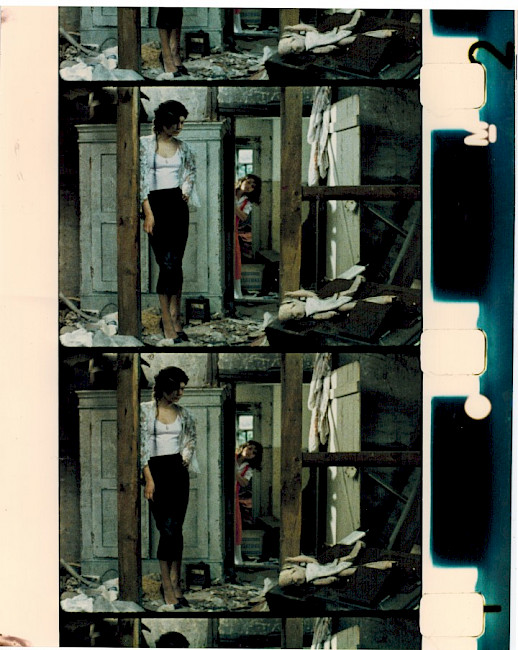Current situation
Providing visibility for the work of female filmmakers and allowing for cinema history to be (re)experienced by today’s audiences are the primary missions of Kinothek Asta Nielsen. Preserving and providing access to our common film heritage represents one of the most important – and above all most urgent – tasks for film archives and institutions dealing with film culture around the world. The long-term preservation and availability of analogue historical film works through digitalisation at high resolutions has proven to be a necessary measure in today’s world, to counter their tendency to fade and vanish. What remains unchanged here, however, is the necessity to preserve, secure and continue to screen the analogue source material as well.
When it comes to the passing down of film work made by women, the current situation can justifiably be described as exceedingly grim. As the selection of films which are perceived to be in acute need of digitalisation frequently occurs according to the criteria of a traditionally male-dominated canon, this problematic state of affairs is at risk of becoming even more amplified in the future.
2018/19: Recha Jungmann
In 2018, as we were taking a look at those screening copies of Recha Jungmann’s films available in the archives in the process of preparing for her retrospective at Remake, it ultimately became clear that going through with this programme would have to go hand-in-hand with the initiation of a restoration project. A sobering realisation, and one typical on the whole regarding the state of the prints we reviewed in putting together our Remake film selection for 2018's thematic focus on “50 years of feminist film work”: everywhere we looked, nothing but red-tinged, tattered copies, if we were able to find any at all. In this sense as well, our demand must be: remake! And in the thoroughly material sense of the verb when it comes to the films of Recha Jungmann: remake new copies for cinema screenings; remake them for audiences that they may discover the sensitive, subjective documents and unusual studies of German history and society waiting within. Recha Jungmann’s work stands as a testament to the fact that rediscovery and contemporary re-presentation of the cinematic work of female filmmakers at Remake will likely all too often prove inseparable from the restoration and re-establishment of the material availability of said work.
The film copies of all of Recha Jungmann’ s works required restoration and thus digitalisation. Jungmann realised two short and three feature-length films, all of which were featured at international festivals. Along with its co-operation partner – DFF – Deutsches Filminstitut & Filmmuseum – Kinothek Asta Nielsen had already begun this film-historical restoration work in the run-up to the first edition of Remake in 2018. This now finished digitisation project covers the following films: RENATE (FRG 1967), TWO RIGHT, TWO LEFT, DROP ONE (CDN 1972), ETWAS TUT WEH (FRG 1979), ZWISCHEN MOND UND SONNE (FRG 1981), UNSERE MÜTTER, UNSERE VÄTER (FRG 1981).
Recha Jungmann’s films are included in the distribution programme of DFF. The digitalised version of Jungmann's exploration of her own childhood, Etwas tut weh, has been part of the retrospective "Self-determined. Perspectives of women filmmakers" at Berlin International Film Festival in 2019.
These digitalisation efforts have been funded by the Hessen Ministry for Higher Education, Research and the Arts and the support of the German Federal Government Commissioner for Culture and Media.







